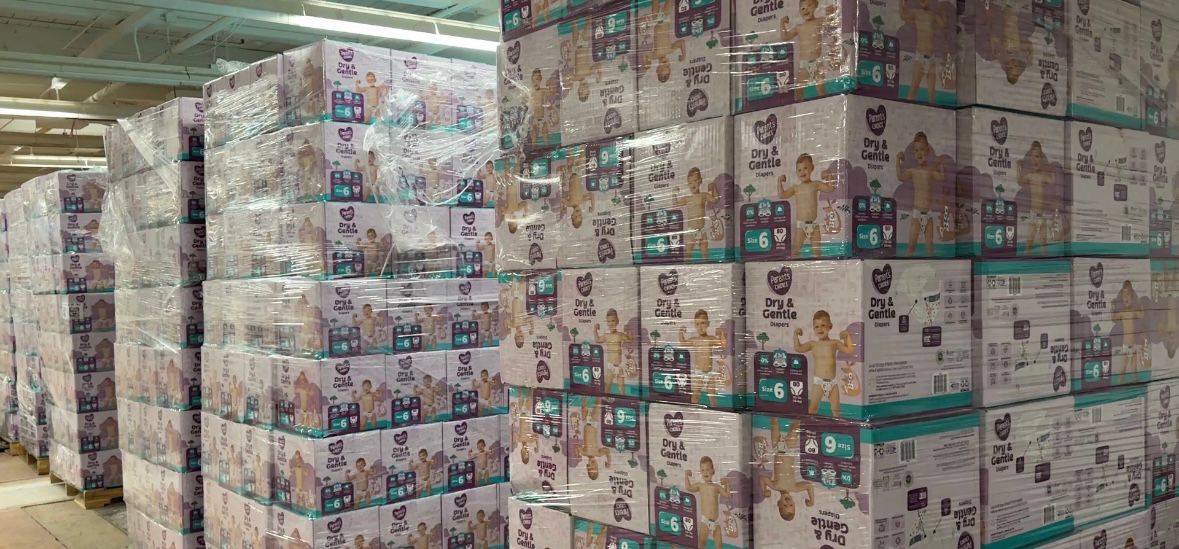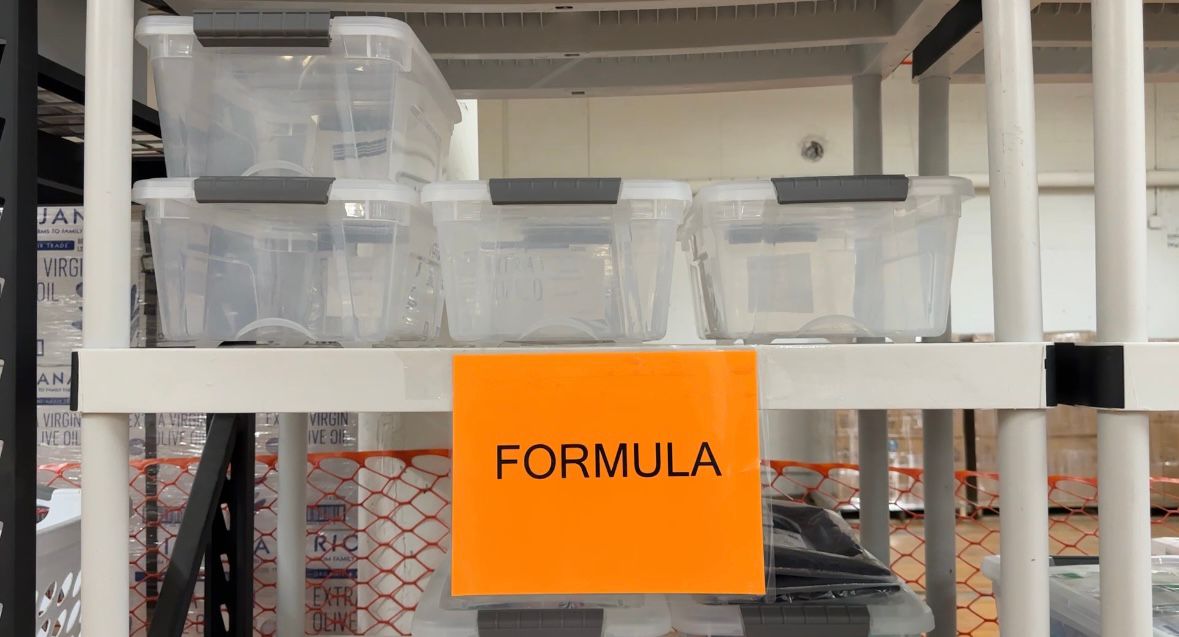HILLSBOROUGH, N.C. — Baby food and formula have had one of the highest inflation rates since last year, according to the U.S. Bureau of Labor Statistics Consumer Price Index.
What You Need To Know
- Baby food and formula prices rose 8.7% from Jan. 2023 to Jan. 2024
- The Diaper Bank of North Carolina helps families by supplying diapers, formulas and feminine hygiene products
- The bank recently moved to a larger location to help service more families
- Reports show raising a child born in 2023 compared to a child born in 2011, costs around 30% more
As many parents know, the cost of raising a child can be expensive, and it's getting more expensive with inflation. This means many parents must reevaluate what items are needed to support their family.
Michelle Schaefer-Old started the Diaper Bank of North Carolina in 2013, to help families who are struggling get diapers.
“My goal was to provide 50,000 diapers into room per year. We now distribute over 5.5 million diapers statewide, serving 65 counties in North Carolina,” said Schaefer-Old.
The CEO and founder of the bank says she and her volunteers help cover 9,000 bottoms of babies a month throughout the state by partnering with organizations that distribute the products. The bank also passes out other items, such as formula and feminine hygiene products.
“We also distribute formula because we're filling in the gap that WIC does not cover. So even though some families get assistance with work, it only supplements. And that means families have about a week and a half gap from when their formula runs out and when their next quick check comes in. And they're using sugar water during that time or they're thinning out their formula,” said Schaefer-Old.

The Diaper Bank of North Carolina recently moved its operations to Hillsborough, with more space to help more North Carolinians.
Since the pandemic, Schaefer-Old says she has seen a 2,000% increase of requests across the state.
“Our research shows that 76% of the families that receive our services are working one to three jobs and still cannot afford the most basic items. We hear from teachers that are teaching our children during the day, go home at night and cannot afford diapers for their own children,” said Schaefer-Old.
Credit Karma estimates that with inflation, raising a child born in 2023 will cost between $16,227 and $18,262 a year. That is about a 30% increase from a USDA report that says raising a child in 2011 cost between $12,290 and $14,320 a year.
“We should not have to have a nonprofit that is providing the most basic, essential hygiene items. They should just be valued for our community members,” said Schaefer-Old.
Between March 2020 and December 2020, the U.S. Bureau of Labor Statistics Consumer Price Index shows a 6.7% increase in the cost for baby food. In the last year, that increase has risen even more. The report released in January shows that between Jan. 2023 and 2024, the cost of baby food and formula has increased by 8.7%.
Although baby food and formula has been the highest increase, other products have also risen. Schaefer-Old says the Diaper Bank of North Carolina also releases multiple papers on the outcomes of distributing the diapers to families and the outcome of community partners who pass out the diapers in food deserts.

“We looked at all the food deserts here in Durham, and we compared diaper prices at those little corner stores, which was the only access point for families, compared to where you can get them in box stores or Walmart or online. And we found that not only were they more expensive, they were outrageously expensive. They were charging a $1.50 per diaper and breaking them up like cigarettes three at a time. And that was the only access point that families had to get diapers in their community unless they had a vehicle,” said Schaefer-Old.
Schaefer-Old says the need is constant, and families will cut out items like hygiene products in order to feed their families.
“We are looking at ways of increasing our capacity in terms of purchasing more formula so we have it on hand, because the need is greater than ever and it's only increasing every single month,” said Schaefer-Old.
She says the bank can get diapers cheaper than boxes community members can buy at the store and encourages those who can to make monetary donations or volunteer.



